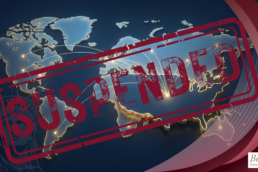A new policy proposal is expected to be released shortly by the Trump Administration that would make the process of obtaining citizenship or green cards more difficult for applicants that have used public benefits like the Affordable Care Act (Obamacare), the Children’s Health Insurance Program (CHIP) or the Supplemental Nutrition Assistance Program (SNAP).
Several news sites are reporting that the new policy is designed to limit naturalization for immigrants living legally in the U.S. Significantly, the proposed policy shift does not require congressional approval, because it would most likely be implemented through a redefinition of “public charge.”
Under current immigration policy, U.S. Citizenship and Immigration Services (USCIS) considers the likelihood that someone might become primarily dependent on the government for subsistence when determining admissibility. An individual that is likely to become dependent on the government is identified as a public charge, and is inadmissible for entry, or unable to adjust their status to become a lawful permanent resident.
Where a public charge historically identified individuals that would primarily depend on the government for public cash assistance and income maintenance or long-term institutionalization, the expected revisions would expand to include individuals and families that have used Obamacare, CHIP or SNAP.
Prior to this shift, services designed to make healthcare costs more affordable, like Medicaid and CHIP, did not brand an individual a public charge and so it did not affect a legal immigrant’s chance of becoming a Lawful Permanent Resident or U.S. citizen. The new policy would effectively expand the factors that an adjudicating officer may weigh when determining whether or not to award an immigration benefit.
Once implemented, this new policy could potentially affect more than 20 million immigrants and would mark one of the most significant changes to the immigration system in recent history.
As this plan is finalized, please continue to check back for more updates. If you have any questions about how these proposals could affect your status in the U.S., please contact one of our attorneys today.
Ready to have Berardi on your side?
Whether you’re a business looking to hire or a professional hoping to relocate, immigration law can be complicated. But you don’t have to do it alone. Put our experience to work for you.



